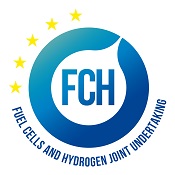Advanced Modelling
The module material has been organized into 8 lectures and represents an in-deep insight of topics already introduced within the mandatory module ‘FC modelling tools and control’. The first part of the course is devoted to the detailed modelling of low temperature fuel cells, focusing on the membrane electrode assembly (MEA). Then, the material deals with detailed modelling of high temperature fuel cells (especially SOFC): a detailed discussion on transport processes is presented. The main gas diffusion models are discussed, as well as the application areas. Momentum and energy balances are also described. Electrochemical reactions modelling is then presented (Butler-Volmer equation), including the description of irreversible phenomena that produce polarization loss (i.e., over-voltages). Furthermore, a description of chemical reactions that may occur within a SOFC electrode is provided. An overview of 2-D and 3-D CFD (Computational Fluid-Dynamic) models for cells and/or stacks is then presented. The last part of module material deals with the methodologies used to model the elementary electrochemical reactions/steps occurring at different scales (within the active sites or inside a discrete cell of the domain), as well as with characterization techniques to evaluate and enhance some key properties of the electrode/cell that can improve the SOFC cell/system performance: Image analysis and Electrochemical Impedance Spectroscopy (EIS). Finally, a seminar describes the research activity on the application of fuel cells in solution for energy storage in remote areas, where renewable energy sources (RES) can represent a cost-efficient and decarbonized alternative to the on-site expensive and polluting electricity generation through traditional fossil fuels.
The module has a duration of about 25 hours.
Module material is organized according to the following list of lectures:
- Advanced modelling of MEA
- Transport phenomena
- Electrochemical modelling
- SOFCs heterogeneous chemistry modelling
- SOFCs modelling: multidimensional approach
- Insights on kinetics and charge transfer
- Image analysis and EIS for SOFCs
- Seminar: modelling of a power-to-power system based on fuel cells
|

